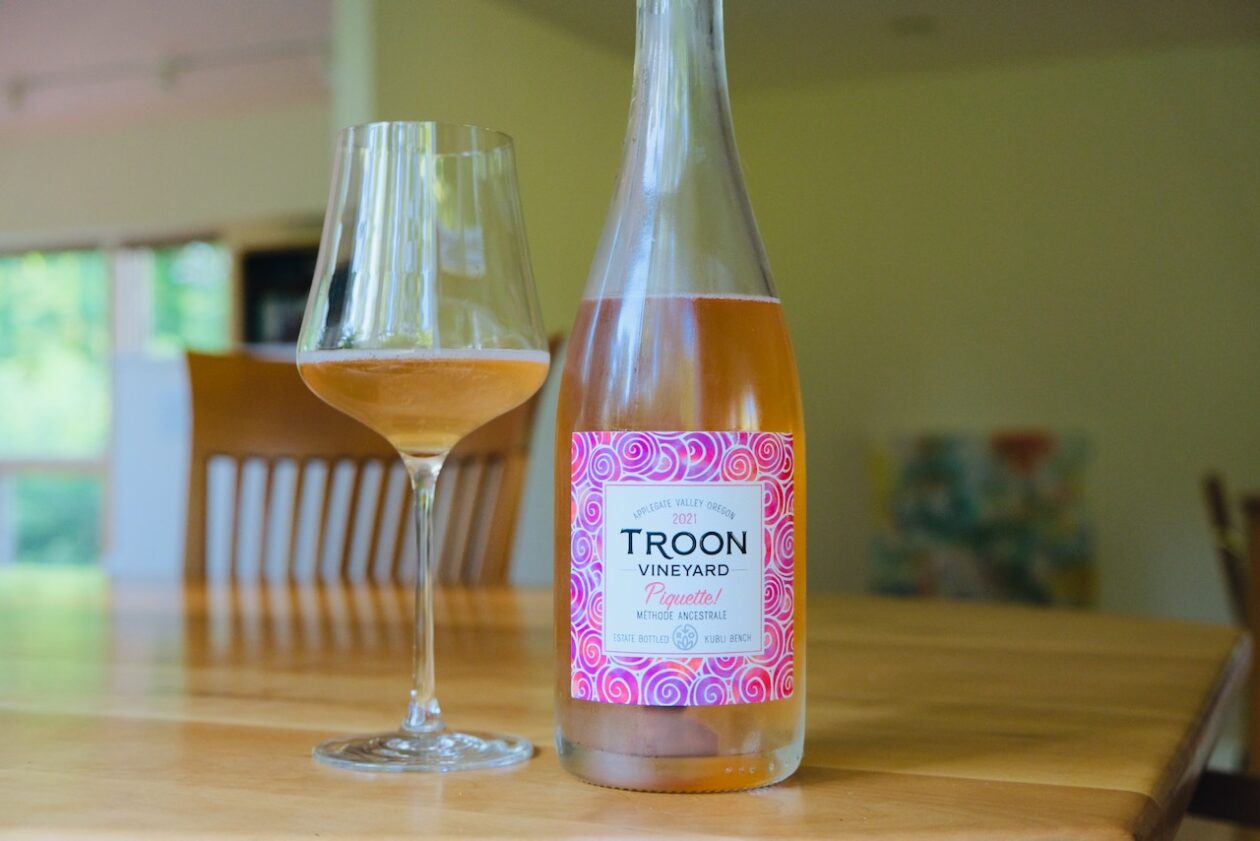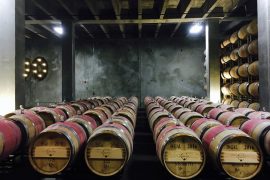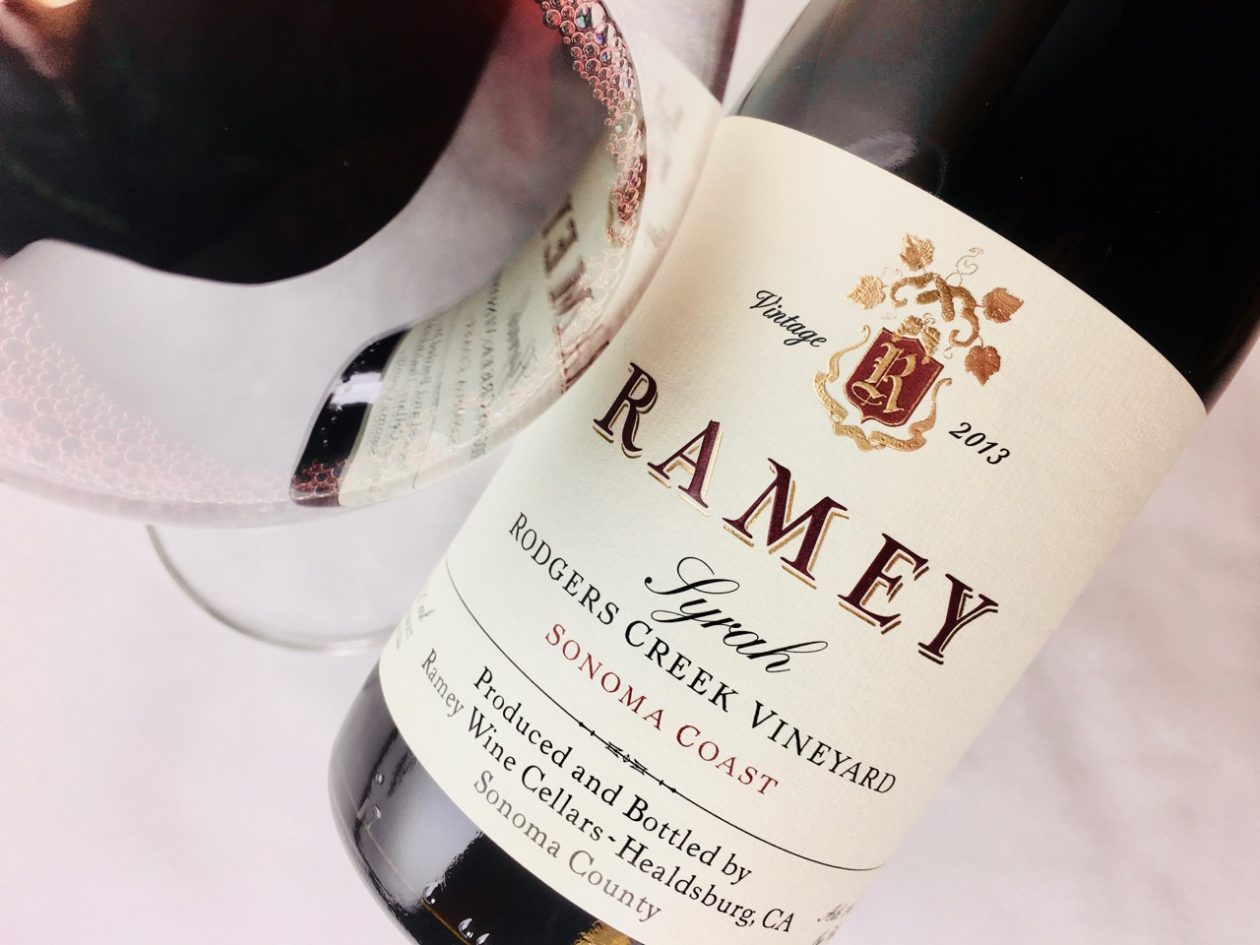
Piquette is normally made by adding water to the press cake, consisting mostly of grape skin and seeds, that remains after a red wine is finished fermentation and gets pressed off to barrel. Troon winemaker Nate Wall takes another tack, using only the pomace of white and rosé wines to make his piquette. Since that pressing is done before fermentation, the skins retain some grape sugar, so nothing extra is needed to kick off fermentation.
These skins stay in a tank overnight with a water addition to rehydrate, and then are pressed off (again) and moved to another tank the next morning. The process repeats throughout harvest as more white and red fruit is pressed for the paler wines. The Piquette fermentation is completed in bottle, à la méthode ancestrale, to earn its bubbles.
The result is coppery pink, slightly cloudy, and the pour quickly subsides into a burbling font of tiny bulles. It smells fruity, stony, and herbaceous all at once, the fruit mostly apple and wild strawberry, the herbs minty and grassy. The fizzy texture is existential, as there is little body or alcohol here, and the lean, rhubarbaric fruit feels somewhat watered down. Ever put an ice cube in your rosé? Sort of like that, but more tart, more linear.
Piquette is historically a farmer’s quaff, a harvest thirst-quencher for hot vineyard workers rather than a broody wine for dark winter evenings. Troon’s efforts suggest they view it more than a cheap and cheerful quaff; it’s rare (280 cases made); certified organic, biodynamic, and regenerative organic; and labor intensive — all factors that drive the bottle price to $25. That’s a lot for the category. But I’m sure it’ll sell out soon, if it hasn’t already.
2021 Troon Vineyard Piquette Méthode Ancestrale Applegate Valley
10.5% ABV | $25 (sample)


